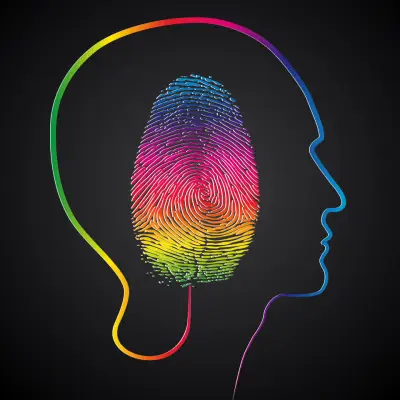Ever wondered what makes society tick? Sociology and its theories allow us to understand our world better, where human interactions shape our daily lives. In this article, we’ll explore the key concepts of sociology that help us to make sense of our social world.
Jump to:
What is Sociology?
Sociology is all about studying how human societies function - how people interact, organise, and relate to each other within groups. It tries to peel back the layers concerning why we operate the way we do in collective environments, instead of just psychological studies of individuals.
It emerged in the 19th century as a response to the societal changes brought about by the Industrial Revolution, urbanisation, and the Enlightenment. Thinkers like Auguste Comte, known as the “father of sociology”, believed that we could unpack the complexities of society by using detailed observation and analysis. They introduced principles like empirical data, statistical rigour, and the scientific method to reveal insights into how groups and organisations operate.
As sociology evolved, key figures like Emile Durkheim, Max Weber, and Karl Marx contributed significantly by developing various sociological theories.
Key Concepts and Theories
Sociology is built upon essential concepts that help theorists to analyse and interpret social life. These concepts include:
- Social Structure - Recurring patterns of social relationships that form the foundation of society.
- Social Norms - The unwritten rules and expectations that guide human behaviour.
- Socialisation - The process by which individuals learn the values, beliefs, and behaviours of their culture or society.
- Social Institutions - Structures that fulfil essential societal functions like family, education, government, and religion.
- Social Change - The study of how societies evolve and adapt to new circumstances and challenges.
Understanding these key concepts is vital for anyone interested in studying sociology, as they provide the building blocks for developing sociological theories.
Recommended for you!
Best SellersSociology Theories
The main theories in Sociology are like different lenses for understanding how societies work. Here are some of the primary sociological theories:
Structural Functionalism
Structural Functionalism sees society as a complex system with interrelated parts, each playing a role to keep things running smoothly overall. It looks at social institutions' functions (and dysfunctions) and how they contribute to maintaining stability.
Conflict Theory
Conflict theory highlights the inequalities, power struggles, and conflicts within society. It focuses on the struggles between groups fighting over limited resources and how this competition can lead to social change.
Symbolic Interactionism
Symbolic Interactionism studies how people communicate through shared symbols, behaviours, and interpretations. It emphasises the importance of everyday interactions and the construction of meaning in social life.
Social Exchange Theory
Social exchange theory suggests that individuals make rational choices to maximise their rewards and minimise costs in social relationships. It's normally used to analyse interpersonal relationships, such as those in economics and family dynamics.
Labelling Theory
Labelling theory falls under the symbolic interactionist perspective within sociology. It focuses on how societal labels and categories, such as "deviant" or "criminal," can influence an individual's self-identity and behaviour. For example, it suggests that individuals labelled as criminals may internalise these labels and conform to the expectations associated with them.
Feminist Theory
Feminist theory addresses issues related to gender and the impact of patriarchy on social structures. It aims to uncover and rectify gender inequalities and discrimination in society.
Rational Choice Theory
Rational Choice Theory argues that people make decisions based on weighing up the individual costs and payoffs of actions. It assumes that we act in self-interest. It's commonly used in economics and political science but is also applied in sociology to understand human behaviour.
Critical Theory
Critical Theory challenges societal status quos, power structures, and ideologies that shape human experiences. It often challenges existing power dynamics and promotes social change.
Postmodernism
Postmodernism challenges traditional sociological theories by questioning the validity of grand narratives and objective truth. It emphasises the role of subjectivity, cultural diversity, and the complexity of modern society.
Social Constructionism
Social Constructionism sees many aspects of life as socially constructed versus innate. For example, many aspects of reality are not inherently given, but are socially constructed via shared beliefs, language, and social interactions. It examines how society builds notions of gender, race, and more.
Interactionism
Interactionist Theories focus on micro-level social interactions and how individuals actively create society. It suggests that we develop our understanding and beliefs based on the exchanges and dialogue we share.
You may have also heard of Meritocracy in Sociology. Although it’s a concept related to sociology, it’s not a sociological theory in the traditional sense. Meritocracy is more of a social system and refers to a society where individuals' success and status are based on their abilities, talents, and efforts (not inherited privilege or social class).

Sociology Vs Psychology
Many people confuse sociology and psychology, but although they’re related, they adopt completely different approaches to human behaviour.
Sociology takes a macro-level view to understand group behaviour and social systems. It investigates societal structures, institutions, and their impact on human behaviour. On the other hand, psychology operates at the micro level and zooms in to concentrate on individual thoughts, emotions, and behaviours. It details the workings of the human mind and how internal factors influence behaviour.
The second difference lies in the units that are used for analysis. In sociology, the primary unit of analysis is the group or society. Sociologists study cultural norms, social institutions and social change. Psychology focuses on the individual as the subject and studies mental processes, such as cognition, perception and emotions.
Lastly, they have research methods. Sociologists usually focus on qualitative methods - like surveys or observations - to collect data on social circumstances. Psychologists use various methods - like experiments, case studies or even clinical observations - to gain insight into an individual’s behaviour and thought processes.
To the confusion of some, an entire branch of psychology fuses the sociology and psychology perspectives - social psychology. As the name suggests, social psychologists explore how social contexts and interactions impact individual psyche and decision-making. It draws heavily from sociological concepts about group dynamics and psychological models of the human mind. For example, social psychologists may study how peer pressure affects self-image or how culture influences personal values.
If you’re an aspiring Sociologist or are simply interested in learning more about sociology and its theories, consider enrolling on our accredited Sociology Diploma Course for just £37 (save £110!).













